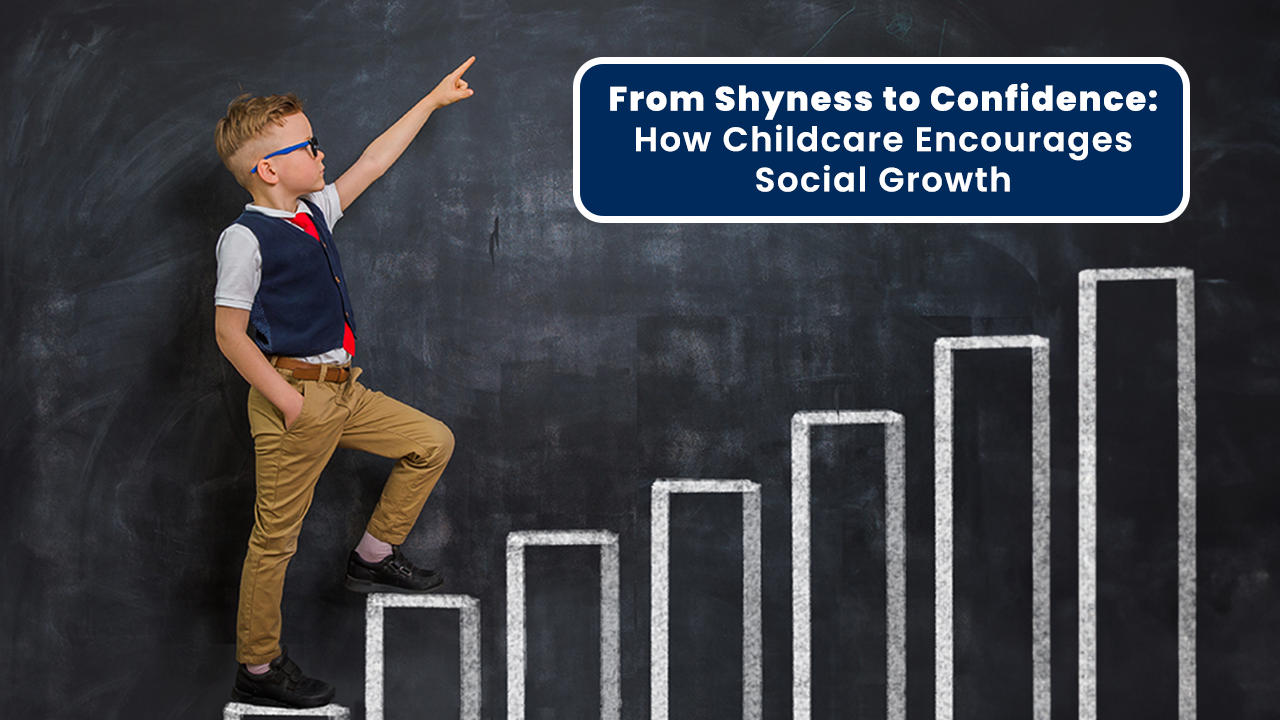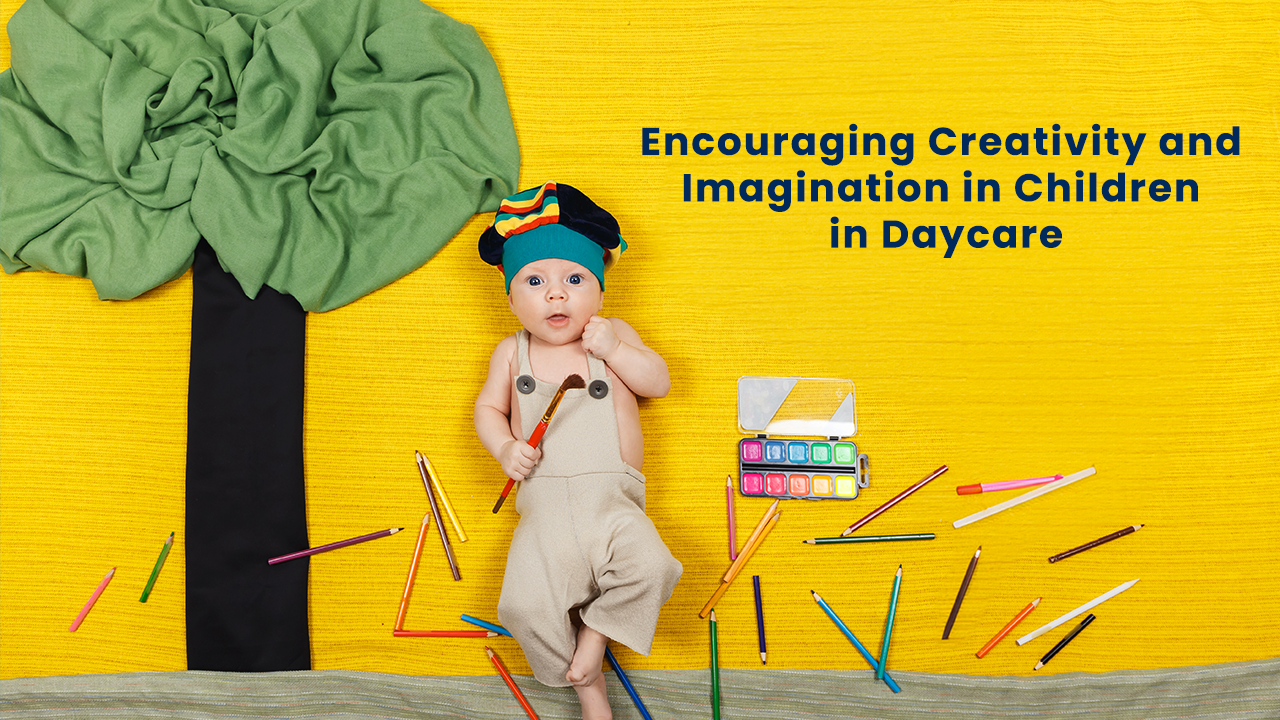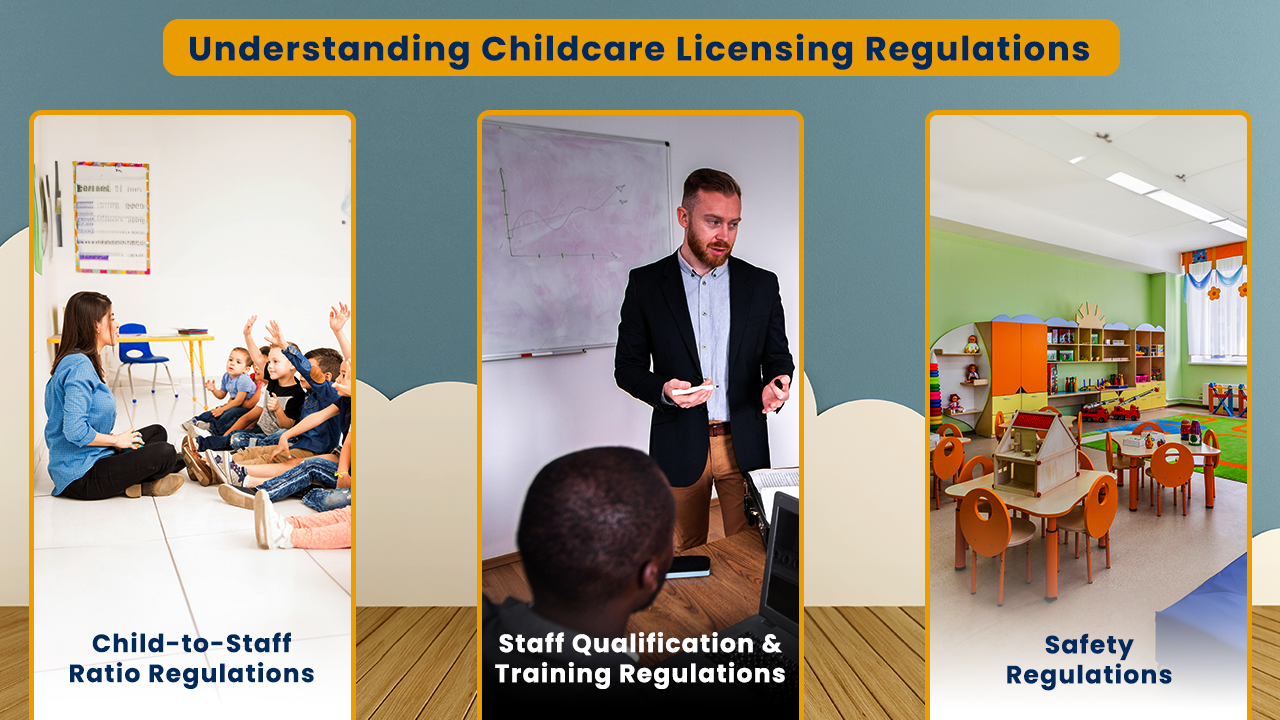
Every child is born with a unique temperament; for some, shyness is an intrinsic part of their personality. Shyness, like all aspects of a child’s personality, is a natural variation—a unique thread contributing to humanity’s beautiful mosaic. However, understanding and nurturing this trait is critical to helping children navigate the intricate web of human connection and emerge as confident individuals ready to embrace the world. In this blog post, we will delve into the fascinating transformation from shyness to confidence, exploring how childcare encourages social growth.
Understanding Shyness in Children
It’s important to recognize that shyness is not a negative trait in itself; it’s a natural variation in temperament. Shy children may exhibit behaviors such as avoiding eye contact, withdrawing from unfamiliar situations, or hesitating to speak in front of others.
Several factors can contribute to shyness in children, including genetics, environmental influences, and past experiences. Some children may be genetically predisposed to shyness, while others may develop it as a response to certain situations or environments. Understanding the root causes of shyness can help parents and caregivers provide appropriate support.
How Childcare Encourages Social Growth
Childcare settings, such as daycare centers and preschools, play a crucial role in promoting social growth in children. It’s essential to understand how childcare encourages social growth. These environments provide structured opportunities for children to interact with their peers and caregivers. In daycare centers and preschools, children can engage in group activities, share toys, and learn critical social skills like taking turns and resolving conflicts.
Qualified and attentive caregivers are essential in facilitating social development. They create a safe and supportive atmosphere that encourages children to express themselves and interact with others. Caregivers trained in child development can identify each child’s unique needs and help them overcome shyness.
Benefits of Childcare on Social Growth
Childcare can have numerous positive effects on a child’s social development. Here are some of the key benefits:
Improved Communication:
Children in childcare settings learn to communicate their needs, thoughts, and feelings to adults and peers. This way, it fosters language development and helps them express themselves effectively.
Cooperation and Teamwork:
Group activities and collaborative play in childcare environments teach children necessary skills like cooperation, teamwork, and sharing. They learn how to work together to achieve common goals.
Enhanced Empathy:
Interacting with diverse groups fosters empathy as children learn to understand and appreciate differences in others. This empathy can lead to more compassionate and considerate behavior.
Building Confidence:
As children conquer their shyness and adeptly navigate social scenarios within childcare settings, their self-esteem and confidence are substantially boosted. This newfound self-assurance strengthens their belief in their capacity to forge meaningful connections with others.
Best Practices on How Childcare Encourages Social Growth
Encourage Playdates:
Arrange playdates with other children to provide opportunities for social interaction outside of structured environments like school or childcare. These one-on-one or small group settings allow children to build closer friendships and practice social skills in a relaxed setting.
Model social behavior:
Children often learn by observation. Demonstrate positive social behaviors in your interactions with others. Show them how to greet people politely, take turns, listen actively, and express empathy. Your actions serve as a powerful teaching tool.
Teach effective communication:
Communication is at the heart of social interaction. Encourage your child to express their thoughts and feelings openly and actively listen when they speak. Teach them to use “I” statements to express their needs and praise them for effective communication.
Practice Role-Playing:
Role-playing is a fun and educational way to help children develop social skills. Pretend play scenarios can include resolving conflicts, asking for help, or sharing toys. Role-playing allows children to experiment with social situations in a safe and controlled environment.
Promote Empathy:
Empathy is a fundamental social skill. Encourage your child to consider the feelings of others by asking questions like, “How do you think your friend feels right now?” Discuss books, movies, or real-life situations that evoke empathy and encourage them to share their perspective.
Set up social activities:
Organize group activities or join clubs or classes that align with your child’s interests. These settings allow children to meet new friends who share their passions and build relationships through shared experiences.
Praise Efforts, Not Just Outcomes:
Celebrate your child’s efforts to socialize and communicate, even if the outcome isn’t perfect. Focus on their attempts to engage, share, or collaborate. Positive reinforcement encourages them to continue trying.
Teach conflict resolution:
Teach children how to resolve conflicts peacefully and assertively. Encourage them to use “I” statements to express their feelings and needs during disagreements. Emphasize finding solutions that work for all parties involved.
Provide Independence:
Allow your child some independence in social situations, such as ordering food at a restaurant or interacting with others at the playground. These experiences build their confidence and social competence.
Be patient and supportive.
Understand that developing social skills is a gradual process, and children may face challenges along the way. Create a nurturing and accepting atmosphere where they can confidently make errors and derive valuable lessons from them.
Foster Diverse Friendships:
Encourage your child to build friendships with children from diverse backgrounds. This helps them appreciate different perspectives and understand the world better. Learn more about the benefits of diversity and inclusion in daycare here.
Limit screen time:
Excessive screen time can hinder the development of social skills. Maintain a well-rounded equilibrium between screen time and face-to-face social interactions.
Challenges and Considerations
While childcare can be highly beneficial for social growth, it’s important to acknowledge potential challenges:
Adjustment Period:
Some children may experience an adjustment period when starting childcare, which can trigger shyness or anxiety. Be patient and provide reassurance during this transition.
Personality Differences:
Not all children are extroverted or naturally outgoing. Respecting and embracing your child’s unique personality while encouraging social growth is essential.
Bullying and peer pressure:
Be vigilant for signs of bullying or negative peer interactions. Ensure your child feels safe and knows how to seek help if they encounter such issues.
Conclusion: How Childcare Encourages Social Growth
In conclusion, childcare can be a valuable tool in helping shy children transition into confident individuals in social situations. By understanding the nature of shyness, recognizing the role of childcare, and actively supporting your child’s social development, you can empower them to thrive in various social settings. Embrace the journey as your child grows and gains confidence, and remember that each child’s path is unique.


